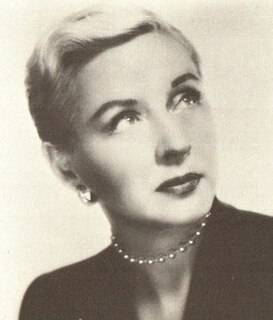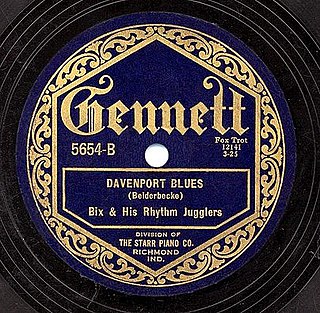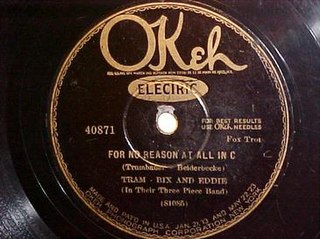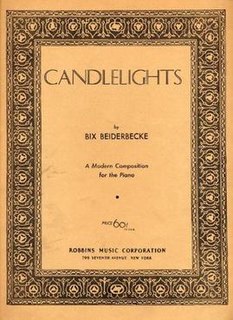

"Flashes" is a 1931 jazz composition for solo piano by cornetist Bix Beiderbecke. It is the third work in a series of four compositions for piano composed by Bix Beiderbecke during his career.


"Flashes" is a 1931 jazz composition for solo piano by cornetist Bix Beiderbecke. It is the third work in a series of four compositions for piano composed by Bix Beiderbecke during his career.
Bix Beiderbecke did not record "Flashes" himself but copyrighted the composition on April 18, 1931, along with "In the Dark", also a piano work, as "A Modern Composition for the Piano". Bill Challis assisted with the transcription for piano. "Flashes was recorded by jazz pianist Jess Stacy on November 15, 1935. Jazz trumpeter Bunny Berigan recorded it in 1939 and released it as a 78 single on RCA Victor, 26121-A. In 2010, pianist Bryan Wright recorded the work on piano along with the three other piano compositions by Bix Beiderbecke, "In a Mist", "Candlelight", and "In the Dark".
In 2020, Juliet Kurtzman and Pete Malinverni recorded an arrangement of "Flashes" for violin and piano on the album Candlelight: Love in the Time of Cholera.
The composition has been recorded by Jess Stacy, Bunny Berigan, Ry Cooder, Dick Hyman, Patrick Artero in 2006, Bernd Lhotzky, Bryan Wright, Dill Jones, jazz guitarist Bucky Pizzarelli on his 1986 Stash album Solo Flight, Geff Muldaur in 2003, Helmut Nieberle in 2005, and Tony Caramia on the 2005 album Zebra Stripes.

Leon Bismark "Bix" Beiderbecke was an American jazz cornetist, pianist and composer.

Weldon Leo "Jack" Teagarden was an American jazz trombonist and singer. According to critic Scott Yannow of Allmusic, Teagarden was the preeminent American jazz trombone player before the bebop era of the 1940s and "one of the best jazz singers too". Teagarden's early career was as a sideman with the likes of Paul Whiteman and lifelong friend Louis Armstrong.

Roland Bernard "Bunny" Berigan was an American jazz trumpeter and bandleader who rose to fame during the swing era. His career and influence were shortened by alcoholism, and ended with his early demise at the age of 33 from cirrhosis. Although he composed some jazz instrumentals such as "Chicken and Waffles" and "Blues", Berigan was best known for his virtuoso jazz trumpeting. His 1937 classic recording "I Can't Get Started" was inducted into the Grammy Hall of Fame in 1975.

Lee Wiley was an American jazz singer during the 1930s, 1940s, and 1950s.

Jesse Alexandria Stacy was an American jazz pianist who gained prominence during the swing era. He is perhaps best known for his years with the Benny Goodman band during the late 1930s, particularly his performance at Goodman's Carnegie Hall concert in 1938.
"King Porter Stomp" is a jazz standard by pianist Jelly Roll Morton, first recorded in 1923. The composition is considered to be important in the development of jazz. It became a hit during the swing era, when it was recorded by Benny Goodman.

Vido William Musso was an American jazz saxophonist.

Jazz is the seventh album by Ry Cooder, produced by Joseph Byrd and Ry Cooder and released on the Warner Bros. Records label.

Harry Bluestone was a violinist who composed music for TV and film. He was prolific and worked mainly on composing with Emil Cadkin. Earlier on, he was a violinist and freelanced on radio in the 1930s with Artie Shaw, Benny Goodman and the Dorsey Brothers. Some of his compositions were also featured on APM Music.

"In a Mist" is a 1927 composition for piano by Bix Beiderbecke.

Davenport Blues is a 1925 song composed and recorded by Bix Beiderbecke and released as a Gennett 78. The song has become a jazz and pop standard.

Metamorphosis: Jazz Meets the Symphony #4 is an album by Argentine composer, pianist and conductor Lalo Schifrin with bassist Ray Brown, drummer Jeff Hamilton, trumpeter James Morrison, percussionist Francisco Aguabella and the London Symphony Orchestra recorded in 1998 and released on Schifrin's Aleph label.

"For No Reason at All in C" is a 1927 jazz instrumental by Bix Beiderbecke, Frankie Trumbauer, and Eddie Lang. The song was released as a 78 single in 1927 on Okeh Records as by "Tram, Bix and Eddie ".

"Candlelights" is a 1930 jazz composition for solo piano by cornetist Bix Beiderbecke. It was the second in the series of four piano works which Bix Beiderbecke composed during his career.

"In the Dark" is a 1931 jazz composition for solo piano by cornetist Bix Beiderbecke. It was the fourth in a series of four piano works composed by Bix Beiderbecke during his career.

Mel Henke was an American jazz pianist, Chicago bandleader, composer, arranger and jingle writer. Henke studied at the Chicago College of Music, then played with Chicago groups with Mitch Todd, Frank Snyder, Stephen Leonard and others. Henke recorded many jazz standards with his own arrangements, including a 1946 piano solo on Bix Beiderbecke's 1928 "In a Mist". His best-known jingles included the Ajax cleanser "stronger than dirt" jingle, for Colgate-Palmolive, and "See the USA in Your Chevrolet" jingle for Chevrolet.
Private Astronomy: A Vision of the Music of Bix Beiderbecke is an album by Geoff Muldaur's Futuristic Ensemble, released on September 30, 2003. It features music by the American jazz cornetist, pianist, and composer Bix Beiderbecke. The album was recorded at Your Place Or Mine in Glendale, California, 4th Street Recording and Jai Winding Studios in Santa Monica, California, and four studios in New York City: Back Pocket Recording Studios, Passport Recording, Shelter Island Sound, and Sorcerer Sound.
Ralph Sutton at Maybeck: Maybeck Recital Hall Series Volume Thirty is an album of solo performances by jazz pianist Ralph Sutton.
Joseph P. Lippman was an American composer, arranger, conductor, pianist, and songwriter working in jazz and traditional pop. His musical career was over five decades long, having started at age 19 with the Benny Goodman orchestra in 1934 and writing for television, films, and Broadway in the 1980s. He composed and arranged for Bunny Berigan, Jimmy Dorsey, Sarah Vaughan, Charlie Parker and worked as staff arranger in television for Perry Como and Hollywood Palace.
Fidgety Feet is a Dixieland jazz standard, first recorded by the Original Dixieland Jass Band in June 1918. The more acclaimed version is the 1924 recording by The Wolverines, with Bix Beiderbecke. It is not to be confused with the George Gershwin song of the same name that appears in the 1926 musical Oh, Kay!.